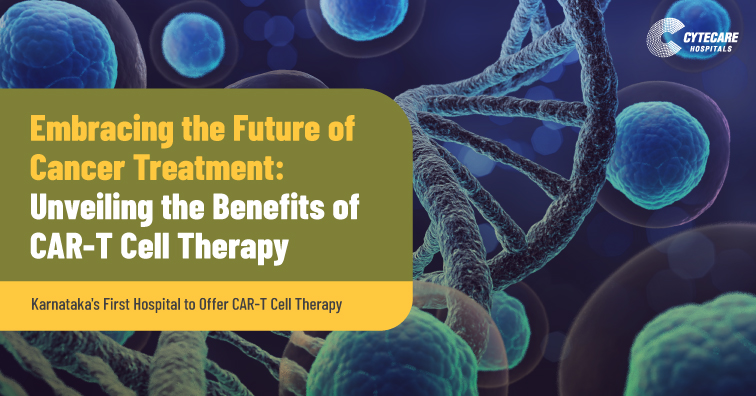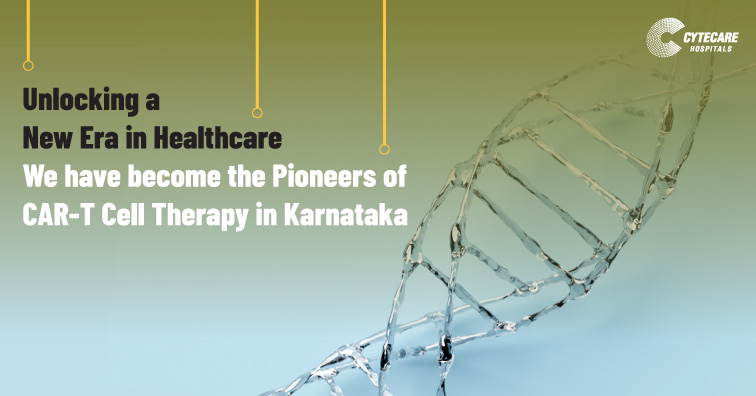Evolution of Medical Oncology
Author:
Dr. Harish P, Consultant – Medical Oncology
Over the past few decades, there has been a tremendous change in the way we perceive, approach and treat cancer. Two decades back, the perception was that it was incurable. Even our teachers in under graduation taught us so. Surgery was the only available treatment, and radiation therapy was thought to be elite, only affordable for few.
Medical oncology was an unheard term. The growth of scientific knowledge from 1970 to 1980 saw the rise of medical oncology. There was a slow but sure move towards best supportive care to cure, from healing to survival. Last few years have advanced cancer care to newer peaks. The survival of cancer patients is advanced with newer targeted therapy and immunotherapy. Nowadays, certain cancer patients are living longer than ever, similar to chronic diseases like diabetes, hypertension, chronic kidney disease or heart failure. There are millions of cancer patients who are walking on earth free of symptoms due to these advancements.
Despite all these developments, we are aware that there is still a long way to go. All cancers are not curable, and it is one of the highest causes of mortality. As oncologists, we have an undeniably tough job. On top of having to understand extremely high-level science, we must also keep a stiff upper lip when faced with challenging and heart wrenching patient situations. The field of oncology isn’t all about the science; there’s a delicate art to answering the tough questions, delivering bad news, remaining empathetic but emotionally distant enough to carry out responsibilities.
Hippocrates, who is considered the father of modern medicine, laid down specific basic guidelines for medical practice. It was an era when medicine was an “art of healing” and when the physician treated by “listening” to the patient. In the present context of growing technology and multidisciplinary approaches, it is the oncologist’s responsibility to consider how to integrate science, art and ethical practices in oncologic care.
When a patient meets us for the first time, he or she comes in a state of fear, almost verging on panic. Meeting the emotional and other needs of the patient and the family go along with the diagnosis and treatment. Stressing the need for comprehensive care, this is where the palliative care team and psychologists provide invaluable support.
Whenever we meet a patient, we try to ensure an honest and clear communication as to what can be done and what terms cannot be achieved. This needs communication skills and empathy to create a sense of confidence and trust. We try to explain the therapeutic options, risks, benefits, pros and cons of different treatment modalities and its complications.
Availability of sophisticated technology should not be the sole reason for its use. One has to carefully consider when and where it is to be used and under what conditions, the better option and the cost-benefit ratio. The importance of this particular issue has increased tremendously in the past few years as newer, costlier treatments are being approved rapidly without an analysis of cost-benefit evaluation or improvement in survival and the probability of ending up with severe adverse events.
Newer treatments come up with newer side effects as well. It is imperative to keep an open mind, inquisitive eyes and ears apart from updated scientific knowledge.
Molecular biology techniques and biomarkers have opened new avenues and capabilities in the areas of prevention, diagnosis, early detection, the staging of disease, monitoring of treatment, prediction of outcome and risk assessment. It can also help detect recurrence, the potential for metastases and so on. However, we are aware that we are still far from accurately predicting the behaviour of various cancers and their outcomes.
Palliative care is an integral component of cancer control and comprehensive care and is accepted as a speciality. Palliative care intends to enhance the quality of life of a particular patient. No two patients are alike either in their needs or response. So palliative care has to be multidisciplinary if it has to be successful. It is dynamic maintenance of the quality of life, psycho-spiritual support and relief of symptoms. There is a delicate and sensitive balance of science and art with social care.
Finally, we are aware that cancer care is not equitable. It’s been an unfortunate reality that the medical care one receives is proportionate to the availability of insurance or financial situation of the patient. This situation in our country is due to virtually negligible public enterprises in health care. The difference between the best, the state-of-the-art, the average and the worst is vast. It is a reality today in health care and certainly so in oncologic care. Non-specialists are treating a significant number of cancer patients. So, it is imperative to assess the affordability of patients also. This is a particularly sensitive issue as it is disheartening to see many patients not receiving particular treatment due to these reasons.
To summarise, cancer treatment is a delicate art involving an evolving scientific, emotional, interpersonal, social, financial and multidisciplinary dimension. My hope and wish are to see a day where cancer is treated just like any communicable disease or a lifestyle disease without the attached stigma and emotional burden.
Cheers





